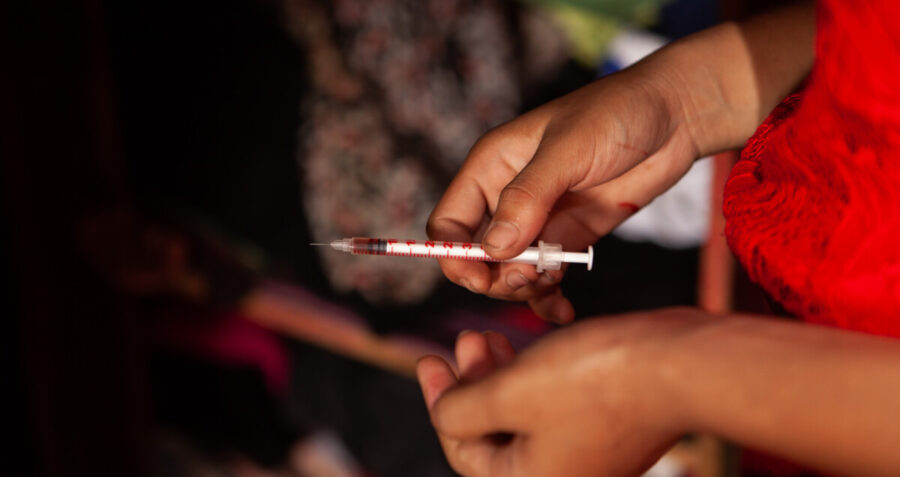Innovate, involve, inspire: Preventing hepatitis C through community-led harm reduction
 ©Frontline AIDS/Gemma Taylor/2018
©Frontline AIDS/Gemma Taylor/2018
Our community-led harm reduction programme explores innovative approaches to reduce new hepatitis C and HIV infections amongst people who use drugs in Egypt, Kyrgyzstan and Nigeria.
Our programme, with funding from UNITAID, aims to reduce new hepatitis C and HIV infections amongst people who use drugs in Egypt, Kyrgyzstan and Nigeria. The innovations made through this programme called ‘Innovate, involve, inspire: Preventing hepatitis C through community-led harm reduction’ could significantly reduce the transmission of hepatitis C and HIV.
WHY THE PROGRAMME IS NEEDED
According to WHO, globally, an estimated 58 million people have chronic HCV (hepatitis C virus) infection. About 1.5 million new infections occurring every year with 80% of these in low- and middle-income countries. HCV disproportionately impacts marginalised communities, people who use drugs and people living with HIV. Antiviral medicines can cure more than 95% of people with hepatitis C infection, but access to diagnosis and treatment is low. While there is currently no effective vaccine against hepatitis C, it is preventable.
WHAT THE PROGRAMME IS DOING
Partners in Egypt, Kyrgyzstan and Nigeria are researching the effectiveness and acceptability of under-used hepatitis C and HIV prevention innovations with people who use drugs. These include:
Providing Long-Acting Buprenorphine (LAB): a new form of Opioid Agonist Treatment (OAT) which is released slowly into the body to maintain treatment of opioid dependence.
- Providing low dead space needles and syringes which reduce the amount of blood left in a needle or syringe after a liquid is injected. This innovation can significantly reduce the transmission of HIV and HCV when injecting equipment is shared.
- Community outreach on harm reduction to reduce hepatitis C among people who use stimulants and integrated hepatitis C testing and treatment in community harm reduction settings.
- The project will also pilot hepatitis C testing and treatment models in a prison setting in Kyrgyzstan.
HOW AND WHERE THE PROGRAMME IS WORKING
The programme combines the expertise of community-based organisations, regional networks, health agencies, and researchers. People who use drugs are at the centre of designing and implementing the programme activities alongside our consortium partners, led by Frontline AIDS: Alliance for Public Health (Ukraine), Bristol University (UK), Caritas Egypt, Drug Free and Preventive Healthcare Organisation (DAPHO) (Nigeria). Education as a Vaccine (EVA) (Nigeria), and Middle East and North Africa Harm Reduction Association (MENAHRA) (Lebanon).


